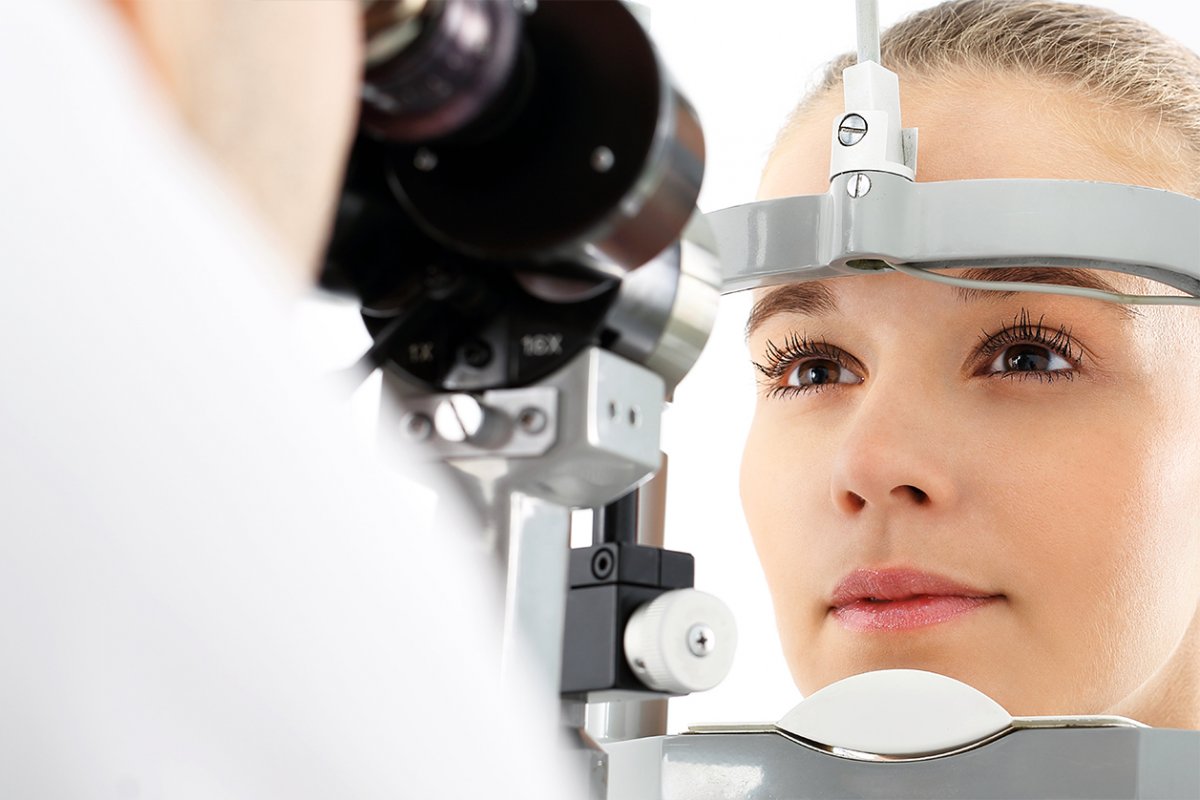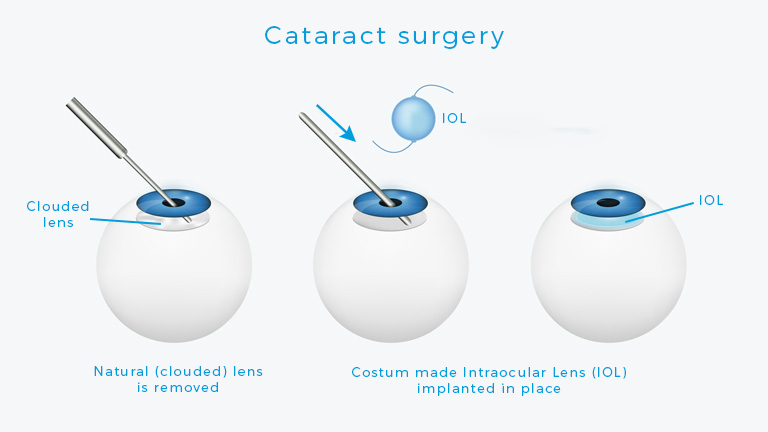Cataract

Ophthalmology - Cataract
- What is cataract?
- Diagnosis
- Cataract surgery and procedure
We can schedule an appointment with the best cataract specialists in Belgium in a very short timeframe.
Contact us, we will be happy to help you!
What is cataract?
A cataract is clouding of the eye lens which leads to a decrease in vision. This is most commonly due to aging but may also occur due to trauma or radiation exposure (for example: UV rays and sunlight). Symptoms may be faded colors, blurry vision, poor night vision, difficulties with recognizing faces and many more.
It is very important to try and prevent cataract as it can lead to consequences that have an influence on the quality of your life. Prevention mainly include having regular eye examinations, wearing sunglasses, reduce alcohol use and quit smoking. You can’t prevent cataract due to age but there is a possibility of healing it.
Different types of cataract
-
Nuclear cataract affects the center of the lens. The lens turns yellow and clouds your vision, with time it even becomes brown. This damages your sight and mainly shows troubles with distinguishing shades of colors.
- Cortical cataract affects the edges of the lens. It begins with a whitish opacity on the outer edge of the lens cortex. As it slowly progresses, the opacities start to enlarge in the direction of the center and interfere with light passing through the center of the lens.
- Posterior subcapsular cataracts affects the back of the lens and interferes with the reading vision, reduces vision in bright light and causes halos around light at night or even during the day. These type of cataract often deteriorate faster than the other types.
- Congenital cataract appears during childhood. It can be genetic, associated with an intrauterine infection or a trauma.
We can schedule an appointment with the best cataract specialists in Belgium in a very short timeframe.
Contact us, we will be happy to help you!

Diagnosis
To determine if you have a cataract, the doctor will review your medical history and symptoms.
It is recommended to perform these medical test at home in advance:
- visual acuity test
- slit-lamp examination
- retinal examination
In this way we can quickly forward the results (in English or French) to the doctor so he can determine which type of cataract surgery is needed. If necessary the doctor will ask for an additional eye examination.
Cataract surgery and procedure
To heal cataract most people undergo a cataract surgery. It involves removing the clouded lens and replacing it by an intraocular lens (an artificial lens). It is positioned in the same place as your natural lens and remains a permanent part of your eye.

There are different types of Intraocular lenses for cataract surgery:
- Monofocal implant lens: the vision becomes sharp in the distance, but reading glasses remain necessary to support the near-sight. Sometimes the opposite is chosen.
- Monofocal toric implant lens: used if a clear astigmatism is detected.
- Multifocal implant lens: this lens offers a good view far and near without correction. If you don’t want to wear glasses anymore, this is often a nice solution.
Your lens choice is important.
The price, function, convenience and long-term satisfaction are important factors to consider.
Some people do not react positive to an artificial lens so the doctors propose to just remove the cataract and advise them to start wearing glasses or contact lenses.
As with any surgical procedure, there are risks associated with cataract surgery. Your surgeon will discuss your specific risks based on your current condition.
Femtosecond laser – Advanced laser cataract surgery
For cataract surgery, the femtosecond laser is used. This is the most modern technology available for cataract removal. It allows for needle-free, blade-free surgery, increased levels of accuracy and is considered the biggest breakthrough in cataract surgery in the last 25 years. It increases the safety of the treatment and ensures a faster and more efficient healing time.
Are you interested in cataract treatment in Belgium? Don’t hesitate to contact our team for more information, we will gladly help you.
Contact
We can schedule an appointment with the best cataract specialists in Belgium in a very short timeframe. Contact us, we will be happy to help you!





